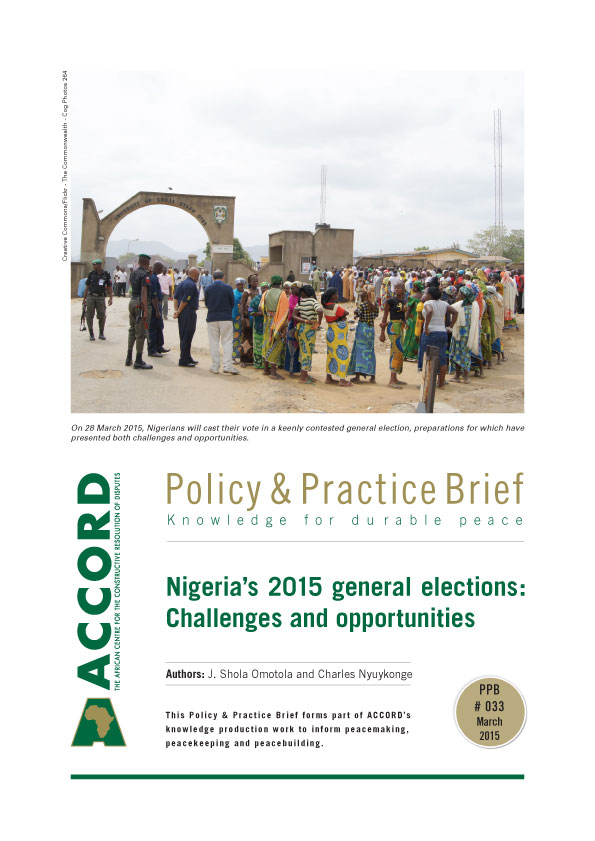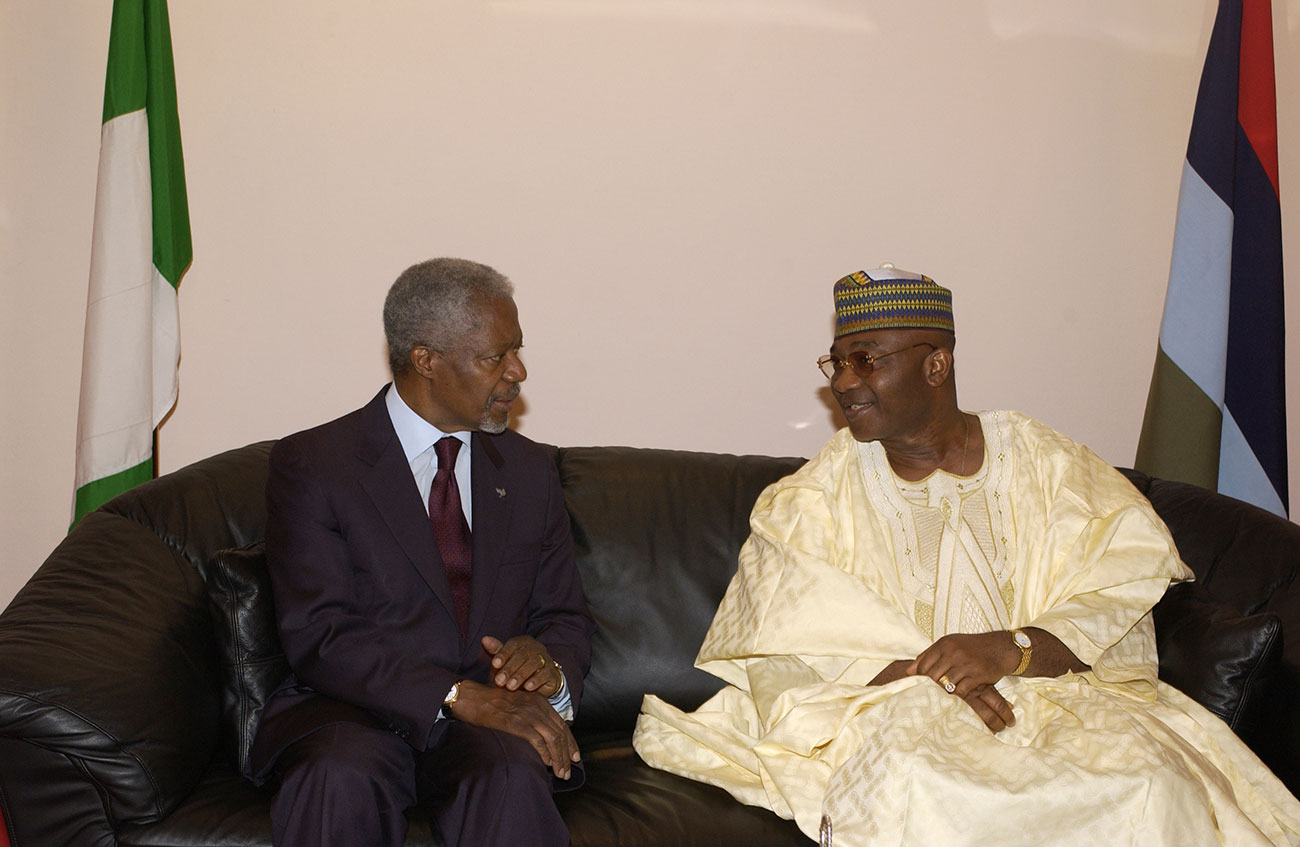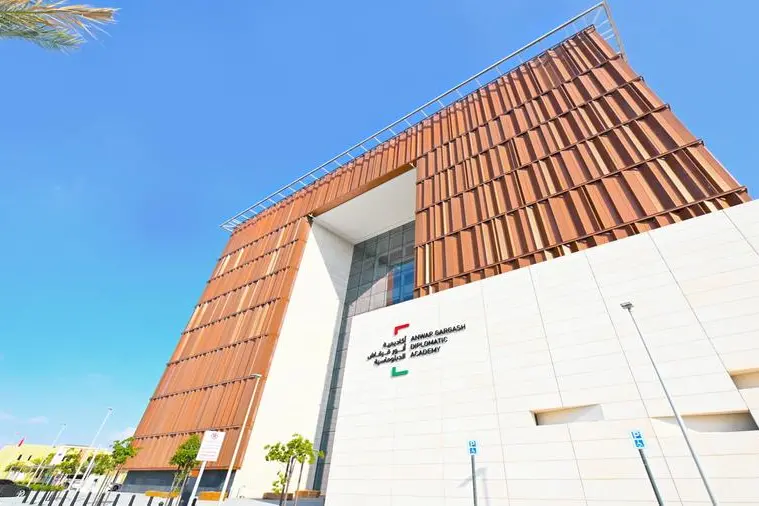Challenges and opportunities
Policy & Practice Brief 33
 |
Concerns about Nigeria’s ability to hold a peaceful general election in 2015 have characterised the work of governance, peace and security sector practitioners and policymakers for some time now. The prevailing discourse emanating from Nigerian and international actors alike predominantly focuses on the actions (and inaction) of major stakeholders, including Nigeria’s ruling and opposition political parties, mass media and civil society, and the international community… |
Nigeria’s upcoming polls are significant, with the potential to make or mar the country’s democracy and threaten its peace and security and, by extension, the stability of the West African region and of the continent. The outcome of the election will largely depend on preparations and the administration of processes by Nigeria’s Independent National Electoral Commission (INEC) before, during and after the polls. This Policy & Practice Brief (PPB) primarily aims to explore Nigeria’s readiness for the election. It draws attention to challenges affecting planning in Nigeria and highlights opportunities that can be harnessed to ensure a free and fair election, with a result that is nationally accepted. The brief assesses the national, regional and international significance of the polls. It analyses the INEC’s preparations for them, as well as the impact of salient contextual issues on the electoral process and its outcomes. It also reflects on opportunities for and limitations to the effective administration of the election. Despite advances in preparing for the polls, there are notable challenges in Nigeria which could negatively affect the March 2015 vote and call into question both the fairness of the process and its results, if no urgent steps are taken to address them. The brief concludes by advancing recommendations for various stakeholders which, if applied, could be useful in ensuring that the election in Africa’s most populous nation and biggest economy is free and fair, and that its outcome is supportive of peace and stability in the country, and the region.







